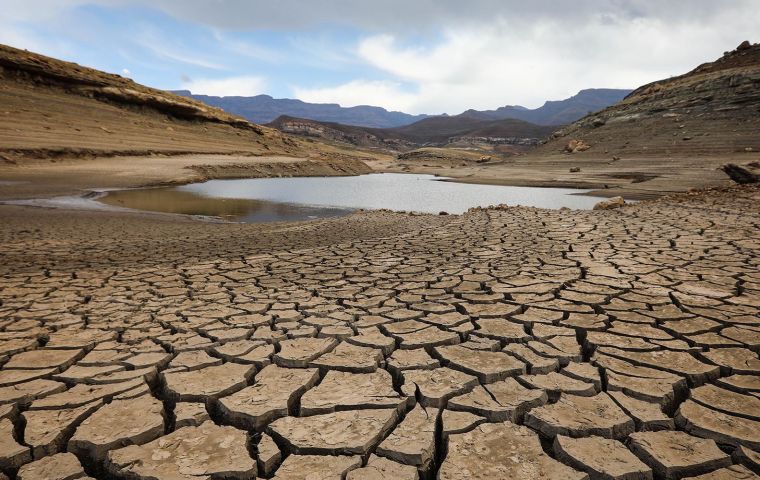MercoPress. South Atlantic News Agency
UN report foresees several water shortages worldwide
 “We need to wake up to the imminent water crisis,” said Taalas.
“We need to wake up to the imminent water crisis,” said Taalas. Climate change is expected to take its toll soon in the form of floods, hurricanes and droughts which will result in spreading water shortages worldwide, the United Nations weather agency warned in a report.
The current administration of water resources is “fragmented and inadequate,” according to the document released Tuesday, which pointed out that nearly 60% of the 101 countries included in the study need to improve their forecasting systems to help prevent severe weather devastation.
With growing populations, the number of people with inadequate access to water is expected to rise to more than 5 billion by 2050, an increase of 3.6% from 3.6 billion in 2018, the report says.
Among the actions recommended by the report are to improve alert systems in areas prone to floods and droughts, which can identify, for example, when a river is expected to rise.
The study also calls for better financing and coordination between countries for water management.
“We need to wake up to the imminent water crisis,” said Petteri Taalas, secretary-general of the UN's World Meteorological Organization.
The report also underscored that since 2000, flood-related disasters globally increased 134% compared to the previous two decades. Most of the flood-related deaths and economic losses were in Asia, where extreme downpours caused massive flooding in China, India, Indonesia, Japan, Nepal and Pakistan in the past year.
The frequency of drought-related disasters increased 29% in the same period. African countries recorded the highest number of drought-related deaths. The biggest economic losses from droughts were in North America, Asia and the Caribbean, the report says.
The report concludes that 25% of all cities worldwide are experiencing regular water shortages. Over the past two decades, in aggregate, the combined supplies of surface water, groundwater, and water found in soil, snow, and ice have declined by 1 centimetre (0.4 inches) per year.
Population growth is going to put more pressure on water resources, especially in sub-Saharan Africa, said Elfatih Eltahir, a professor of hydrology and climate at the Massachusetts Institute of Technology (MIT), who was not part of the study.
According to the report, 3.6 billion people had inadequate access to water at least one month per year in 2018. By 2050, this is expected to rise to more than five billion, the study titled “The State of Climate Services 2021: Water” warned.
The situation is worsening by the fact that only 0.5 per cent of the water on Earth is useable.




Top Comments
Disclaimer & comment rulesCommenting for this story is now closed.
If you have a Facebook account, become a fan and comment on our Facebook Page!